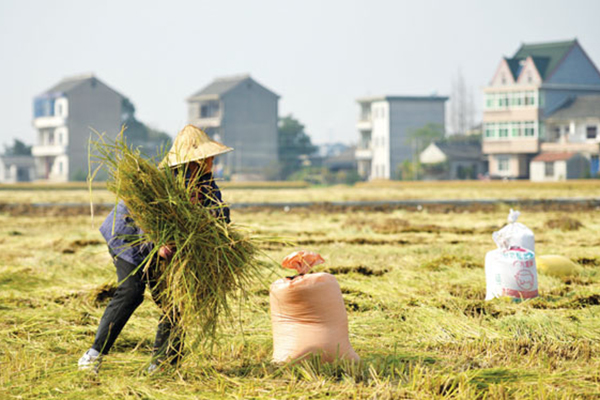 |
|
A farmer harvests rice in the village of Gangzhong in China's eastern Zhejiang province. China has managed to grow itself out of grain shortages but it is facing fresh challenges, including rural workers moving to better paying jobs in cities. [Photo/Agencies] |
As China begins its 13th Five Year Plan (2016-20) one of the key components will be agriculture and food security.
For decades, agriculture has occupied the minds of successive leaders as the country moves from its agricultural base to an economy driven by innovation and technology.
China today produces a quarter of the world's food and manages to feed a fifth of the world's population on just 10 percent of the planet's agricultural land. But the question for China is: What now?
After several years of good harvests, China has managed to grow itself out of grain shortages but structural problems still remain.
The new Five Year Plan aims to address some of the challenges that agriculture faces such as mechanization, supply chains, food processing and farming models.
Some of these issues will be addressed at the upcoming Boao Forum for Asia in a panel discussion on the future of agriculture. The forum will be held at Boao, in South China's Hainan province, from March 22 to 25.
As it stands, China still relies on small family holdings to produce much of its food. This traditional model faces fresh challenges as more and more rural workers move to better paying jobs in the cities.
One of the questions that will be put to the forum is: Will the Chinese family-based farming model continue to work, or should the government allow land acquisitions (with the right to use land, not the ownership) and give way to big-farm agriculture as in the United States? Or should it adopt the models used in Japan and South Korea which are more reliant on technology and smaller landholdings?
Doug Ferguson, partner-in-charge of KPMG's Asia and international markets group, said China is "essentially self-sufficient in rice, grain, pork and, to a certain extent, seafood".
"It does, however, need to import beef, dairy products and branded food products such as powdered milk," he told China Daily Asia Weekly.
Ferguson said safety issues in some domestic processed foods have left consumers seeking imported products.
"That is why Chinese investors are looking at Australia's agricultural sector, especially dairy.
"They are buying into dairy for premium safety products — products that are processed and packaged in Australia and exported from Australia."
